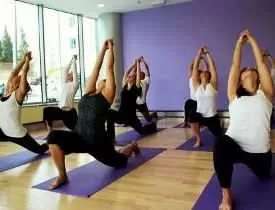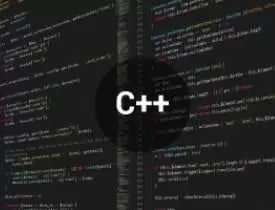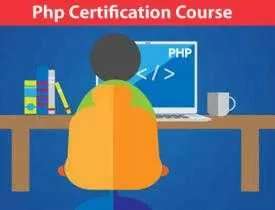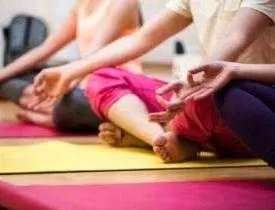Description
Course Name: Post Graduate Diploma in Yoga Teacher’s Training
Course Id: PGDYTT/Q0001.
Education Qualification: Graduate.
Duration: 370 Hrs.
How You will Get Diploma Certificate:
Step 1- Select your Course for Certification.
Step 2- Click on Enroll Now.
Step 3- Proceed to Enroll Now.
Step 4- Fill Your Billing Details and Proceed to Pay.
Step 5- You Will be Redirected to Payment Gateway, Pay Course and Exam Fee by Following Options.
Card(Debit/Credit), Wallet, Paytm, Net banking, UPI and Google pay.
Step 6- After Payment You will receive Study Material on your email id.
Step 7- After Completion of Course Study give Online Examination.
Step 8- After Online Examination you will get Diploma Certificate soft copy(Scan Copy) and Hard Copy(Original With Seal and Sign).
Step 9- After Certification you will receive Prospect Job Opportunities as per your Interest Area.
Online Examination Detail:
- Duration- 120 minutes.
- No. of Questions- 60. (Multiple Choice Questions).
- 10 Questions from each module, each carry 10 marks.
- Maximum Marks- 600, Passing Marks- 40%.
- There is no negative marking in this module.
| How Students will be Graded: | ||
| S.No. | Marks | Grade |
| 1 | 91-100 | O (Outstanding) |
| 2 | 81-90 | A (Excellent) |
| 3 | 71-80 | A (Very Good) |
| 4 | 61-70 | B (Good) |
| 5 | 51-60 | C (Average) |
| 6 | 41-50 | P (Pass) |
| 7 | 0-40 | F (Fail) |
Benefits of Certification:
- Government Authorized Assessment Agency Certification.
- Certificate Valid for Lifetime.
- Lifetime Verification of Certificate.
- Free Job Assistance as per your Interest Area.
Syllabus
Post Graduate Yoga Teacher Training programme
Foundations of Yoga
Origin of Yoga, History and Development of Yoga; Etyrnology and Definitions, Misconceptions. Aim and Objectives of Yoga, True Nature and Principles of Yoga. General Introduction to Shad-darshanas with special emphasis on Samkhya and Yoga Darshana, Yoga in Vedanta. Introduction to Smritis and Yoga in Smritis; General introduction to Agamas and Tantra, Yoga in Tantra; Concepts of Nadi and Prana in Tantra, Kundalini, Effects of Kundalini Shakti and Shatchakra Sadhana, Yoga in Modem Times: Yogic Traditions of Ramakrishna and Swami Vivekananda, Shri Aurobindo; Yoga traditions of Maharishi Ramana and Swami Dayanand Saraswati.
Principles of Hatha Yoga
Introduction to Hatha Yoga and Hatha Yoga Texts. Siddhasiddhanta Paddhati, Hatha Pradeepika, Gheranda Samhita, Hatha Ratnavali and Shiva Samhita. Aim & objectives, misconceptions about Hatha Yoga, prerequisites of Hatha Yoga, Sadhaka and Badhaka tattvas in Hatha Yoga; Concept of Ghata, Ghatashuddhi. Concept and importance of Shodhana kriyas in Hatha Yoga; Importance of Shodhana kriyas in health and disease; Concept of Mattha, Mitaahara, Rules & Regulations to be followed by Hatha Yoga Sadhakas. Asana in Hatha Texts: Definition, pre requisites and special features of Yoga-asana; Asana in Hatha Pradeepika, Hatha Ratnavali.
Yoga & Allied Science
INTRODUCTION: Brief History of modern Psychology, Major Perspectives in Modern Psychology , Key data collection methods in Psychology, Introduction to Altered States of Consciousness: Sleep: Stages of Sleep, Circadian Rhythm, Sleep Disorders; Dreams: The Content of Dreams; Hypnosis, Biofeedback, Behavioral Psychology: Psychology as a Science of Behavior; Definition of Behavior; Psychic forces and human behavior, Personality: Nature and Types of Personality; Determinants of Personality: Heredity and Environment, Cognitive Psychology: Sensation, Perception, Attention, Memory, Learning, Feeling etc.; Their definitions and types, Mental Health: Means of mental health; Positive Mental Health; Causes and Consequences of Conflicts and Frustrations.
Human Anatomy & Physiology
Meaning of Anatomy and Physiology; Need and importance of knowledge of anatomy and physiology in Yoga; Structure and function of Cells, Structure and functions of different types of tissues, Musculo-skeletal System- Types of Muscles: Skeletal, Smooth and cardiac; Name and location of the bones in the body; Types of bones; Joints and types of joints. Respiratory System- Structure of respiratory tract: Nose, Pharynx, Larynx, Bronchi, Bionchioles, Alveoli- lungs; Mechanism of respiration, Digestive System- Anatomy and Physiology of digestive system; Secretions of the gastrointestinal tract; Functions of Liver and Pancreas, Endocrine System- Structure and Functions of pituitary, pineal.
History and Philosophy of Pre Primary Education
The History and Meaning of Yoga, Important Historical Yoga Teachers and Philosophers, Common styles of yoga, Types of Yoga, Fitness yoga, Power Yoga, Yoga Flows, Texts and Philosophy, Vedas, Upanishads, Yoga Sutras of Patanjali, chapters, Main Yoga Philosophy Concepts, Key Sutras and Concepts, Yama-Universal Values of Life, Niyamas- Personal Observances, fire of the practice, dedication, self-study or study of sacred texts, awareness of and surrender to something greater, non-violence, non-killing, working with the life force energy.
Yoga Therapy
Yoga therapy-meaning, concept and areas, limitations, aim of Yoga Therapy, Principles of Yoga Therapy, Tools for Yoga Therapy- Yama, niyama, asana, pranayama, shatkarma, mudrabandha, dhyana, Importance of Yoga Therapy In modern times, Concept of Pancha Prana, Shatchakra, concept of Panchakosha, Rules and limitations of Yoga Therapy in different diseases, Classification of Yoga classes, important rules for Yoga Therapist, rules for patient, Classification of Yoga classes, important rules for Yoga Therapist, rules for patient.






